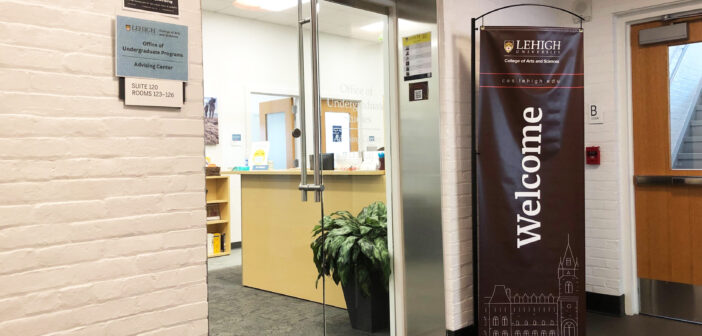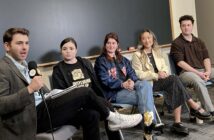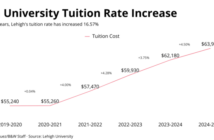Editor’s Note (March 4, 2024) : This article has been updated to reflect inaccuracies in original reporting and omit quotes from sources that were no longer timely or potential sources of confusion.
—
Entering college can warrant uncertainty when making new friends, adjusting to a new environment and navigating academics. For many first-year students, selecting classes that can determine their major is an added stressor.
As the spring semester continues and students are getting settled into their schedules and anticipate registration, some are reflecting on their experiences with first-year advising.
The College of Arts and Sciences Academic Advising Center has a system in place for first-year students who enter Lehigh undeclared.
Bruce Whitehouse, an anthropology professor and first-year advisor, said in the College of Arts and Sciences, undeclared students are assigned their advisors at the beginning of the semester.
According to their website, the goals of the advising center are to provide support and resources for undecided students, assist students in navigating the college and university policies and procedures, make referrals to faculty and campus resources, introduce students to special programs and help navigate registration issues.
With a number academic departments and interdisciplinary programs, and approximately 2,200 students, the College of Arts and Sciences makes up the largest portion of the Lehigh undergraduate student population, according to University Statistics.
Whitehouse said he advises 60 students, half of whom are first-years.
He said his role is dedicated to ensuring students understand how to navigate Lehigh academically and to help them make informed decisions when building a schedule.
“I’m one of the relatively few (professors) who have stepped forward and said, ‘Sure, I’ll take first-year advisees,’” Whitehouse said.
Whitehouse said advising first-year students is a fair amount of work, especially at the beginning of the academic year and when students are preparing for registration. Outside of those two crunch periods, he said the position doesn’t place too many demands on him.
At the beginning of the fall semester, there is a period when every first-year is supposed to meet with their advisor. According to the CAS Academic Advising Center, advisors help with sorting out options and understanding “the consequences of decisions in light of rules, procedures, and program requirements.”
Mary Kilcoyne, ‘24, said she chose most of her introductory classes based on what her friends took and recommended to her.
“I was really indecisive and I had no idea what I wanted to do,” Kilcoyne said.
She didn’t feel that her first-year adviser pushed her to take any specific courses, but when she mentioned she enjoyed her political science classes, her adviser helped her select more interesting courses and ultimately declare the major.
She said political science classes were her favorite, and she genuinely wanted to do the work and learn more in these courses.
Kelly Austin, the assistant dean of undergraduate programs in the College of Arts and Sciences, said she has worked to make the first-year advising experience more intimate than when she initially arrived on campus in 2012.
She said advisers can now apply for one of the 24 positions to fulfill their key service requirement. Recently, she’s seen more faculty apply to serve in the role than she has slots for.
“Even that in itself is groundbreaking, you know, something that hadn’t happened ever before,” Austin said. “I think the way that we kind of repositioned, retitled, elevated the role, really encouraged faculty to take it more seriously.”
Austin said the College of Arts and Sciences advising system is in a constant state of reinvention, trying to fix the nuts and bolts in cohorts of advisers.
“Certainly, no system is perfect,” Austin said. “And as we continue to move on, any kinks or challenges that emerge, we can refine for next year.”






Comment policy
Comments posted to The Brown and White website are reviewed by a moderator before being approved. Incendiary speech or harassing language, including comments targeted at individuals, may be deemed unacceptable and not published. Spam and other soliciting will also be declined.
The Brown and White also reserves the right to not publish entirely anonymous comments.